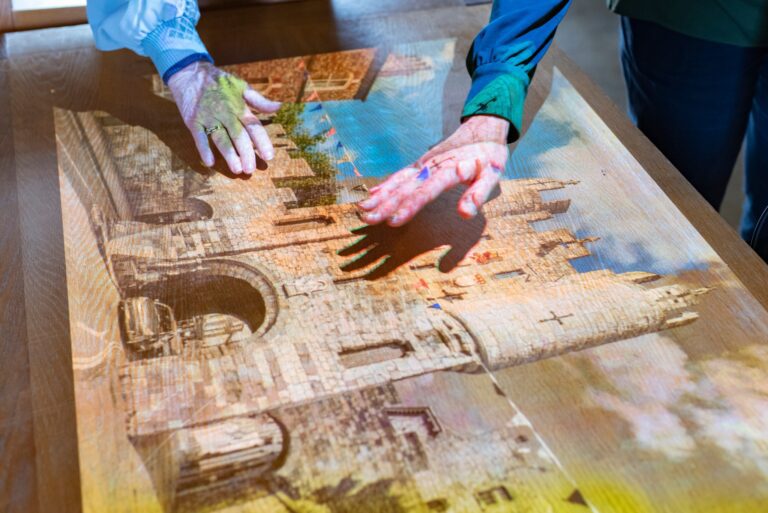A recent call with Molly and Kelly, Senior Carer and Manager at Greenbanks Care Home, run by Dhyani-care, based in Maidstone, Kent provided us with some more remarkable real-world examples of how our service can be beneficial to those with cognitive impairments.

Dhyani-care
Dyhani-care is a home that provides care predominantly to those with dementia, but they are also mental health focussed and provide palliative care. The home currently houses 18 residents. They’ve been using the Happiness Programme for about a year, without any previous experience with interactive light technology.
“We Love the Seasonal Games.”
Molly and Kelly reported their residents love the technology and whilst it makes a difference during the day, an even bigger improvement is seen in the evenings and at night. They love using the seasonal games and described them as a great distraction for residents. The most recent seasonal game they have been playing is the fireworks game, which they projected onto both the walls and the ceilings to bring bonfire night to their residents in the cosy climate of their home.
“Residents Get to Join in Instead of Just Watching.”
They’ve found the best way in which the Happiness Programme has helped residents is by tackling behavioural challenges, by allowing residents to choose which activities they’d like to do. An example they provided includes recently using the Wordsearch game with one resident who struggles with mobility. Because the Happiness Programme can be moved room to room, surface to surface, the resident was able to join in with the fun and games instead of just watching the more mobile residents be involved. 1:2:1s with that resident have been successful.
These 1:2:1 sessions also often lead to group sessions, encouraging residents to interact with each other, noted as one of the biggest benefits for Dhyani-care. When one begins playing others want to join in too – even residents who say no to everything! Engagement with the games is increased using props and lots of laughter was reported. Competitive streaks are brought out when the residents and staff play the Beach Ball game on the floor, which provides a sense of achievement.
“It’s Peaceful and Adds Variety.”
For palliative care residents, the Happiness Programme is mostly used in the evenings once visitors have left. Molly and Kelly reported residents watch the lights and listen to the music, providing peace and adding variety to their evenings. They’ve also seen reduced PRNs through distractions and improved hydration because of the Happiness Programme.
“The Range of Games Really Helps us Tailor and Personalise the Activities.”
Molly and Kelly also told us how valued the Happiness Programme is to staff, particularly to reduce challenging behaviour and free up staff from 1:2:1 care. The variation and range of games available helps to tailor and specially personalise activities for residents.
It’s evident just how beneficial the Happiness Programme has been for the residents and the staff at Dhyani-care.

Copyright © 2021 Social-ability. All Rights Reserved.